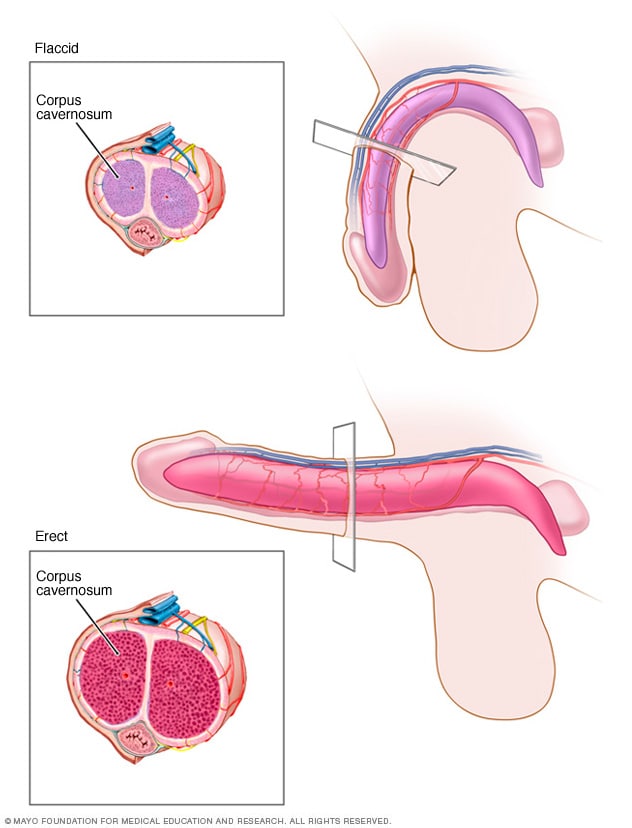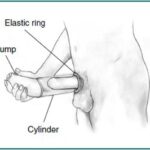Erectile dysfunction (impotence) is the inability to get and keep an erection firm enough for sex.
Having erection trouble from time to time isn’t necessarily a cause for concern. If erectile dysfunction is an ongoing issue, however, it can cause stress, affect your self-confidence and contribute to relationship problems. Problems getting or keeping an erection can also be a sign of an underlying health condition that needs treatment and a risk factor for heart disease.
If you’re concerned about erectile dysfunction, talk to your doctor — even if you’re embarrassed. Sometimes, treating an underlying condition is enough to reverse erectile dysfunction. In other cases, medications or other direct treatments might be needed.

What are the symptoms of erectile dysfunction?
Symptoms of ED include
- being able to get an erection sometimes, but not every time you want to have sex
- being able to get an erection, but not having it last long enough for sex
- being unable to get an erection at any time
ED is often a symptom of another health problem or health-related factor.

What causes erectile dysfunction?
Many different factors affecting your vascular system NIH external link, nervous system NIH external link, and endocrine system can cause or contribute to ED.
Although you are more likely to develop ED as you age, aging does not cause ED. ED can be treated at any age.
Certain diseases and conditions
The following diseases and conditions can lead to ED:
- type 2 diabetes
- heart and blood vessel disease NIH external link
- atherosclerosis
- high blood pressure
- chronic kidney disease
- multiple sclerosis NIH external link
- Peyronie’s disease
- injury from treatments for prostate cancer NIH external link, including radiation therapy and prostate surgery
- injury to the penis, spinal cord, prostate, bladder, or pelvis
- surgery for bladder cancer NIH external link
Men who have diabetes are two to three times more likely to develop ED than men who do not have diabetes. Read more about diabetes and sexual and urologic problems.
Taking certain medicines
ED can be a side effect of many common medicines, such as
- blood pressure medicines NIH external link
- antiandrogens—medicines used for prostate cancer therapy NIH external link
- antidepressants NIH external link
- tranquilizers, or prescription sedatives—medicines that make you calmer or sleepy
- appetite suppressants, or medicines that make you less hungry
- ulcer medicines
View a list of specific medicines that may cause ED NIH external link.
Certain psychological or emotional issues
Psychological or emotional factors may make ED worse. You may develop ED if you have one or more of the following:
- fear of sexual failure
- anxiety NIH external link
- depression NIH external link
- guilt about sexual performance or certain sexual activities
- low self-esteem
- stress—about sexual performance, or stress in your life in general
Certain health-related factors and behaviors
The following health-related factors and behaviors may contribute to ED:
- smoking
- drinking too much alcohol
- using illegal drugs
- being overweight
- not being physically active


